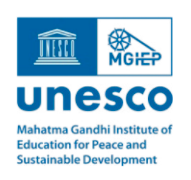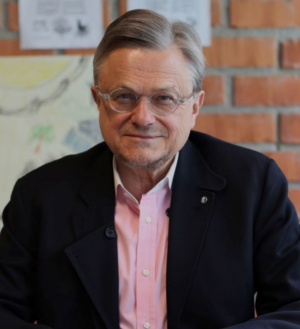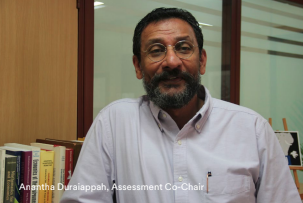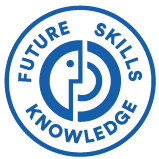Hoe zorgen we ervoor dat ieder mens toegang krijgt tot goed onderwijs? Hoe geven we alle mensen een betere start in het leven? De oprichter van Kunskapsskolan, Peje Emilsson, heeft de afgelopen 2 jaar – op uitnodiging van het UNESCO Mahatma Gandhi Instituut voor Onderwijs voor Vrede – meegewerkt aan een wereldwijd onderzoek om deze vragen te beantwoorden. Cecilia Aronsson sprak met hem over zijn bevindingen.
 How do we make sure that every human being gets access to good education? How do we give all humans a better start in life? Kunskapsskolan’s founder Peje Emilsson is deeply engaged in these questions. In the past two years, he has been a member of the Advisory Board of a global research project about the future of education, initiated by the UNESCO Mahatma Gandhi Institute of Education for Peace and Sustainable Development (MGIEP). This global study has been conducted by 260 education experts from 45 countries. The project – International Science and Evidence based Education (ISEE) Assessment – is based on four pillars of education, considering what, when, how and where to learn and teach:
How do we make sure that every human being gets access to good education? How do we give all humans a better start in life? Kunskapsskolan’s founder Peje Emilsson is deeply engaged in these questions. In the past two years, he has been a member of the Advisory Board of a global research project about the future of education, initiated by the UNESCO Mahatma Gandhi Institute of Education for Peace and Sustainable Development (MGIEP). This global study has been conducted by 260 education experts from 45 countries. The project – International Science and Evidence based Education (ISEE) Assessment – is based on four pillars of education, considering what, when, how and where to learn and teach:
- Learning to be
- Learning to know
- Learning to do
- Learning to live together

The ISEE Assessment is expected to be released on March 21st, 2022. The organizing UNESCO committee is based in India: “It is significant that India is taking the lead on this. India is going through a massive transition. How can we change the way we provide education so that everyone in India gets better prospects in life?” Peje asks.
The first answer by ISEE is that every learner learns differently. So, receiving a personalized learning experience should be a natural right. For all the world’s learners. Peje wants more global cooperation around education just like countries come together to battle environmental challenges. It requires coordinated measures, such as international curricula: “This is in line with the goals for sustainable development set up by the United Nations. To achieve a sustainable world, we need education where students learn about the whole world, not just their own country’s history. In the future, we will need more global agreement on what children should learn,” says Peje.
He envisions a larger group of teachers will start edu cating students in more than one country, partially by digital solutions that allow education to be transmitted in several places. “When my children were in sixth grade, everyone in the class knew the length of the bridge that connected our Swedish island with the mainland, but few knew the time difference between Sweden and Finland,” Peje remembers.
He believes in equal opportunities for every student, regardless of the parents’ wealth. He thinks more countries should extend financing of schools by the state to promote equal access to education and opportunities for all.
Another message from ISEE is that school should not be only about the brain. Students have hands and hearts and need to grow their skills, personality, and responsibility for a sustainable way forward for the world, in addition to pure subject knowledge. Anantha Duraiappah, the Assessment Co-Chair remarks that education must integrate the cognitive with the social and emotional dimension of learning using a “whole brain” approach. Good education makes students understand how their own citizenship, personal actions and efforts will have an impact on the rest of the world. Good education is also about letting each person reach their potential. This will be different for every learner, thus requiring a personalized learning experience. Kunskapsskolan has provided this for almost 22 years in Sweden and beyond:
“We have been invited to a number of countries to develop and improve their education, and we do that by allowing each student to learn more. A school is not successful because it brings out a handful of students to the best universities and jobs. A school is successful when it brings out every student’s potential,” Peje says.

He does not believe in meritocracy that only singles out the strongest students. Since everyone is different, students should focus on competing against themselves, developing at their own pace, based on their own potential.
This is more difficult for a school than just pointing out the winner in a competition between everyone. But the world needs schools that discover everyone’s potential to help everyone become ready to contribute to society in various ways.
Cecilia Aronsson
KED Network Director


